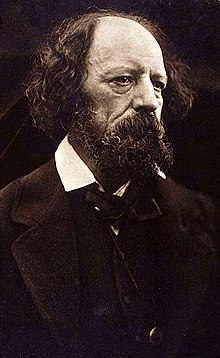'The Idylls of the King....gives the impression of being made out of some high-class decorative material rather than poetry'and then goes on to assert:
'However, cleverness is not essential for poets. What they need is a faultless ear, a gift for phrase and instant access to the human heart.'before citing some examples.
This struck me as an interesting view of what constitutes a poet, in that it excludes a
quality - cleverness - that many people would cite as the defining characteristic of the genre. A reason popularly produced by people for not reading poetry is that it is too 'difficult', which could be interpreted as too intellectually challenging, which in turn is not a condition arrived at in the absence of cleverness. We hail, it seems to me, many of the poets from the last two centuries (Auden, Yeats, Eliot, Pound) as great because, at least in part, of their philosophical content and intellectual insight. There is also the aspect of 'cleverness' which allows the poets of the highest stature to employ language in a concentrated, precise manner that is not necessarily susceptible to full immediate apprehension.
One can, of course, proceed too far down this road into the unappealing neighbourhood of wilful obscurity, and there is the famous literary joke about someone publishing a volume of poetry and following this with publication of 'the answers'. I still maintain, however, that we need to keep clear critical dividing lines between great, literary poets and (albeit hugely talented) versifiers such as, for example, John Cooper Clarke or Benjamin Zephaniah, who are among writers periodically presented as representing poetry that is somehow more acceptable (even 'genuine') because it doesn't attempt to embarrass its readers with 'cleverness' that smacks of elitism or cultural snobbery (which seems to me like criticising a racing cyclist for being disconcertingly rapid).
Carey's witty dismissal of 'The Idylls' (apropos of nothing else in particular) reminds me of a typically, brilliantly deranged short story by Richard Brautigan, Homage to the San Francisco YMCA, in Revenge of the Lawn, in which the protagonist decides to replace his domestic plumbing with poetry. It does not perform well.

So, what is your opinion of Leonard Cohen's wilfully obscure poetry?? (she asks, and ducks.)
ReplyDelete